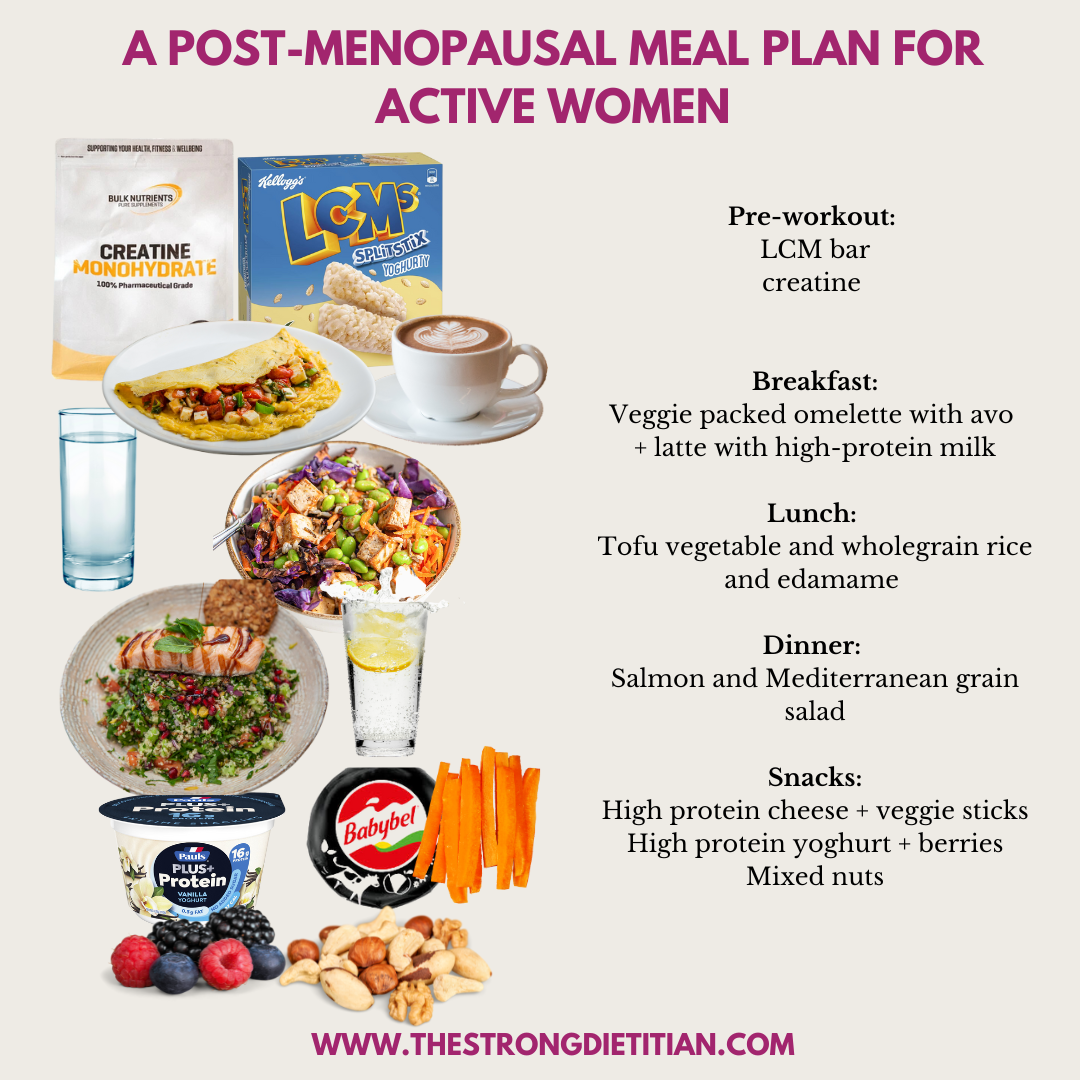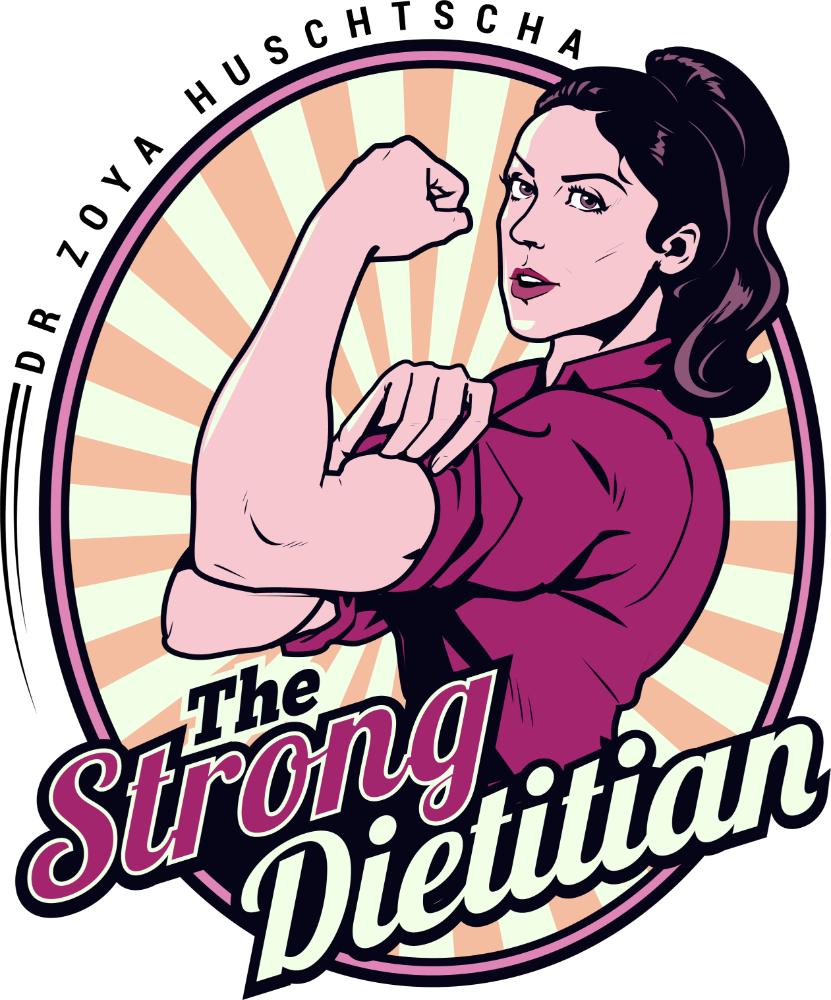Menopause and Nutrition: How Active Women Can Support Their Bodies Through the Transition
Apr 22, 2025
If you’re an active woman who trains regularly, menopause can feel particularly frustrating — especially when you notice unexpected weight gain despite keeping up your usual exercise routine. Hot flashes, disrupted sleep, and changes in mood are well-known symptoms, but a shift in metabolism and body composition often takes women by surprise.
One crucial, yet often overlooked, aspect of managing menopause is nutrition. The foods you eat can play a major role in supporting your body, regulating hormones, maintaining strength, and managing changes like stubborn fat gain.
What Happens to Your Body During Menopause?
Menopause is officially diagnosed after a woman has gone 12 consecutive months without a period. It typically occurs between the ages of 45 and 55, but it can happen earlier or later. This stage marks the end of your reproductive years and is triggered by a decline in estrogen and progesterone production by the ovaries. As a result, you might experience a variety of symptoms such as:
- Hot flashes
- Night sweats
- Mood swings
- Sleep disturbances
- Weight gain
- Bone density loss
Even if you're lifting weights, running, or doing regular HIIT sessions, these hormonal shifts can impact how your body responds to training and nutrition. The good news? With targeted nutrition and small lifestyle adjustments, you can manage these changes and continue feeling strong and energised.

Key Nutrients to Support Menopause
Phytoestrogens: Plant-Based Estrogen Helpers
During menopause, the drop in estrogen can lead to uncomfortable symptoms. Phytoestrogens are plant compounds that mimic the effects of estrogen in the body and may help alleviate some of these symptoms. A review of 10 studies found that women who took a phytoestrogen supplement (36- 100mg/day) experienced less hot flashes compared to those that didn’t.
- Sources: Soy products (tofu, tempeh, edamame), flaxseeds, sesame seeds, and chickpeas are all excellent sources of phytoestrogens.
- Benefit: Incorporating these foods into your diet can help balance hormones and reduce symptoms like hot flashes and night sweats.
Calcium and Vitamin D for Bone Health
The decline in estrogen also affects bone density, putting women at a higher risk for osteoporosis. Ensuring you get enough calcium and vitamin D is vital to maintaining bone health during menopause. Additionally, when women head into menopause their calcium requirements actually increase.
- Calcium Sources: Dairy products (milk, cheese, yogurt), leafy green vegetables (kale, spinach), fortified plant milks (almond, soy), and almonds.
- Vitamin D Sources: Fatty fish (salmon, mackerel), egg yolks, fortified foods, and sunlight exposure.
- Benefit: Calcium and vitamin D work together to keep bones strong and reduce the risk of fractures and bone loss.
Omega-3 Fatty Acids for Heart and Brain Health
Estrogen helps protect the cardiovascular system, but as levels decline during menopause, heart health can be at risk. Omega-3 fatty acids are heart-healthy fats that can help reduce the risk of heart disease and improve brain function.
- Sources: Fatty fish (salmon, sardines, mackerel), flaxseeds, chia seeds, walnuts, and hemp seeds.
- Benefit: Omega-3s help lower inflammation, improve heart health, and support cognitive function, which may help with memory and mood changes during menopause.
Fiber for Digestive Health and Weight Management
Metabolism tends to slow down during menopause, which can lead to weight gain, especially around the abdomen. A high-fiber diet can help manage weight by promoting satiety and regulating blood sugar levels. Additionally, fiber supports digestive health, which can become an issue as hormonal changes occur.
- Sources: Whole grains (oats, quinoa, brown rice), fruits and vegetables (apples, berries, broccoli), legumes (beans, lentils), and seeds (chia, flax).
- Benefit: Fiber keeps you feeling full for longer, promotes healthy digestion, and helps maintain stable blood sugar levels.
Protein for Muscle Preservation, Metabolism, and Recovery
During menopause, the natural decline in estrogen makes it harder to maintain muscle mass — even if you’re training regularly. There is a condition known as anabolic resistance, this is the resistance that your muscles have (due to ageing) for taking up protein. In other words, it becomes harder for your muscles to take up the same amount of protein as someone who is younger. Studies have shown that HIGHER intakes of protein are important to achieve to overcome this anabolic resistance. Why protein? Well protein is a KEY nutrient that can help maintain muscle as we age.
- Sources: Lean meats (chicken, turkey, beef), fish, eggs, dairy products (Greek yogurt, cottage cheese), legumes (lentils, chickpeas), tofu, tempeh, and high-quality protein powders if needed.
- Benefit: Supports muscle maintenance, improves recovery from training, helps regulate appetite, and keeps your metabolism firing.
👉 Tip: Aim for around 1.6–2.2 grams of protein per kilogram of body weight per day, spread evenly across meals, to best support muscle retention and body composition during menopause.

Final Thoughts
- Menopause is a natural and inevitable part of life, but with the right nutrition and lifestyle changes, you can ease the transition and feel your best. By focusing on nutrient-dense foods like phytoestrogens, calcium, omega-3s, magnesium, and fiber, you can support your body’s needs and manage symptoms like hot flashes, mood swings, and weight gain. Remember, every woman’s experience with menopause is unique, so it’s essential to listen to your body and make adjustments that work for you.
- If you’ve experienced changes in your diet during menopause or have any specific questions, feel free to leave a comment or get in touch!
Related Reading: Learn how collagen can support healthy joints, skin, and bones during menopause in The Ultimate Guide to Collagen.
Concerned about heart health after menopause? Here's how to Manage Cholesterol with Diet for Better Heart Health.
Frequently Asked Questions (FAQ)
What are the best foods for menopause weight gain?
Foods high in protein, fiber, and healthy fats — such as salmon, leafy greens, Greek yogurt, and flaxseeds — can support metabolism and reduce weight gain during menopause.
Should women over 40 increase protein intake during menopause?
Yes. Due to hormonal changes, women over 40 should aim for 1.6–2.2g of protein per kilogram of body weight daily to maintain muscle and metabolism.
Ready to take control of your health? Book a free discovery call today and let’s discuss how I can help you reach your wellness goals
Stay connected with news and updates!
Join our mailing list to receive the latest news and updates from our team.
Don't worry, your information will not be shared.
We hate SPAM. We will never sell your information, for any reason.



